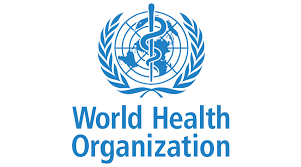
World Health Organization
tendersglobal.net

Job Description
<!–
Description
–>
RTU is a global and regional health policy priority aligned with health-related SDGs by 2030. It is built on the principle of universality and aims to ensure that no one is left behind.
The Region has seen remarkable progress on important global and regional targets for HIV, TB, malaria, neglected tropical disease, polio, hepatitis B, and measles. However, ending and eliminating many of these endemic diseases continues to be challenging. This is mainly because health systems continue to miss significant numbers of people with these disease conditions in all countries – and not only in countries with weak health systems. In addition, inequalities in the social determinants of health, viz., income, education level, gender, ethnicity, and geographic location, cause inequitable access and health outcomes among different population groups across the Region. In recognizing that progress has not equally benefited all population groups in the Region, countries are now striving to achieve the ambitious global universal health care (UHC) targets and complete the business of preventing and eliminating morbidity, mortality, and disability caused by these diseases by 2030.
Countries must adopt an integrated systems approach to reach the unreached and ensure universal health care. They need to use this approach to strengthen the three core elements of primary health care, viz., health systems and services, community and people empowerment and multi-sectoral actions to address socio-economic determinants and barriers. These three core elements are the same as the three priority action areas for reaching the unreached. To do all this, it is essential to identify the unreached populations and the reasons for not reaching them. In addition, we must identify and use local, cost-effective grounds up’ solutions for that purpose.
Methods to carry out the activities:
The Region has seen remarkable progress on important global and regional targets for HIV, TB, malaria, neglected tropical disease, polio, hepatitis B, and measles. However, ending and eliminating many of these endemic diseases continues to be challenging. This is mainly because health systems continue to miss significant numbers of people with these disease conditions in all countries – and not only in countries with weak health systems. In addition, inequalities in the social determinants of health, viz., income, education level, gender, ethnicity, and geographic location, cause inequitable access and health outcomes among different population groups across the Region. In recognizing that progress has not equally benefited all population groups in the Region, countries are now striving to achieve the ambitious global universal health care (UHC) targets and complete the business of preventing and eliminating morbidity, mortality, and disability caused by these diseases by 2030.
Countries must adopt an integrated systems approach to reach the unreached and ensure universal health care. They need to use this approach to strengthen the three core elements of primary health care, viz., health systems and services, community and people empowerment and multi-sectoral actions to address socio-economic determinants and barriers. These three core elements are the same as the three priority action areas for reaching the unreached. To do all this, it is essential to identify the unreached populations and the reasons for not reaching them. In addition, we must identify and use local, cost-effective grounds up’ solutions for that purpose.
Methods to carry out the activities:
- Organize regular meetings with different stakeholders
- Conduct qualitative research using focus group discussions and in-depth interviews
- Produce high-quality short reports and a research paper
- Perform other related work as required
Qualifications/Experience/Skills and Knowledge and languages:
Qualification:
Essential:
Qualification:
Essential:
- University degree from a recognized university, which may include medical, anthropology, social science, public health, or epidemiology.
Experience
Essential:
Essential:
- Minimum five years of work experience in public health
Technical skills and knowledge:
- Excellent and demonstrated qualitative research skills, including publications
- Good communication skills
- Excellent skills in writing
- Excellent planning and organizational skills
Language:
- Excellent knowledge of English is essential (Reading-Writing-Speaking)
<!—
<!–
Recommend your friend
<!–
–>
To help us track our recruitment effort, please indicate in your cover/motivation letter where (tendersglobal.net) you saw this internship posting.
Related Jobs
Showing 1 - 4 of 363120 jobs
-

Fourniture, installation des Climatiseurs et appareils électroménagers UN WOMEN
UN-WomenSenegalSenegal- Tender/Procurement
-

International Consultant for Nutrition Emergency Guideline development and TOT Facilitator, UNICEF Libya, Duration: 70 Days (Work Remotely)
UNICEF GlobalLibyaLibya- Contract
-

Temporary Appointment: Partnerships Manager (P-4), In Riyadh- Gulf Area Office for 12 Months
UNICEF GlobalSaudi ArabiaSaudi Arabia- Contract
-

Retendering RFQ- UNW-JCO Vehicles Maintenance
UN-WomenJordanJordan- Tender/Procurement
